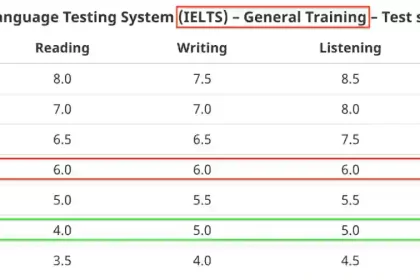2023 can be considered a revolutionary year for artificial intelligence; Because this technology became very popular and became the main focus of many large companies' programs. Now that 2023 is coming to an end, it's a good time to speculate about the future of artificial intelligence. Join Digiato to map the future of the most important technology in the world today.
OpenAI is becoming a product-oriented company
After the management changes in November 2023, OpenAI's way of working seems to have changed as well, and the conservative policy of the previous board may give way to the new team's business goals.
Not long ago, OpenAI introduced the GPT store to users, and reports indicated its launch in December 2023; But due to the differences that arose between the high-ranking members of the company, its official launch was delayed, and we will probably have access to this app store in 2024.
This store allows you to create customized versions of ChatGPT by setting various parameters such as tone and language and sell them to users at the desired price. You will also have access to other designed versions in the store and can rate them. It is possible that this method will be used by other companies in the future (for example, a large number of Google products will be offered by Bard).
Intelligent assistants and productive multimedia models enter a new phase
In 2024, artificial intelligence models such as intelligent assistants and productive multimedia models are expected to be in better shape than they are now.
If AI is going to offer capabilities beyond summarizing texts and making lists of your requests, it needs things like accessing transit apps, spreadsheet apps, and buying tickets. For this reason, in 2023, we saw several experimental attempts to provide these capabilities under the name of “agent-based models” or “intelligent assistants”, but none of them caught on. We don't expect these models to start operating next year, but we want them to take a step forward, show more convincing capabilities, and handle some difficult processes like submitting insurance claims well.

Multimedia models will also reach a stage where their shortcomings will not be so visible, and with the presence of skilled creators, their production videos will be designed and created in fun and interesting ways. Likewise, generative music models will find their way into some mainstream areas such as games; Where musicians can use these tools to create an endless soundtrack.
The limitations of unified language models are becoming more apparent
Until now, there has been a lot of optimism about the capabilities of large-scale linguistic models (LLM). In fact, these models have achieved capabilities beyond expectations and grow along with the addition of more computational algorithms. However, as research continues in all dimensions of large language models, it will be difficult and almost impossible to predict the coming year.

As research continues in 2024, the capabilities of language models will be further evaluated and studied, and then their weaknesses, such as multiplying large numbers, will seem more logical. We will also see a decrease in the number of parameters, so that despite the better results of training a 500 billion parameter model, more effective ways will be used to create these parameters.
Designing a single model is difficult and expensive, while deploying a set of smaller, more specific, multifaceted models can be just as effective as a single model and support a simpler update method. As a result, the year 2024 can be considered a different year in the construction of different parameters.
The marketing world is facing reality
The fact of the matter is that 2023 will be hard to follow for 2024; Because this year, the advertisements about machine learning (Machine Learning) are very high and unrealistic, and the continuation of this process will lead to business failures and numerous complaints for companies active in this field. As a result, they have to be careful about their claims and obsessive about their advertising.

It can also be expected that in the coming year, a significant number of customers will abandon the use of artificial intelligence tools; Because the benefits of productive tools cannot overcome their risks and threatening consequences.
Also, with the growth and development of artificial intelligence capabilities, the tools and products of 2023 will face a decrease in the number of users and will be replaced by possible and new products of 2024.
Apple enters the world of artificial intelligence
Apple always follows a consistent pattern for entering an area: wait, watch, learn from other companies' failures, and then go in strong with its hands full. Now, apparently, the time has come for Apple to announce its entry into the artificial intelligence industry. The reason for this action can probably be related to Apple's readiness to improve this technology, not competitors becoming more powerful and dominating this industry.

It is predicted that Apple's possible artificial intelligence will focus on carrying out practical commands of users and for this purpose it will integrate many signals and ecosystems. This AI will also have multimodal understanding (primarily understanding users' images) and you can expect some limited but impressive capabilities such as restaurant table reservations and food ordering.
What makes it a bit difficult to predict is how these possible capabilities will be presented. Apple could offer these features through a new, separate service, or combine them with its existing voice assistant, Siri, and make an “enhanced Siri” available to users. Apple may feel that Siri is no longer as effective as it used to be, but millions of people around the world say “Hey Siri” every 10 seconds. Therefore, Cupertinos are likely to choose the second approach.
Legal cases end and new cases arrive
In 2023, many cases were filed regarding copyright and other violations by companies providing artificial intelligence services; But a few of them went live and many of them are still pending.
In the coming year, many of these cases, which have been raised in principle and logic, will probably be sidelined; Because companies hide important information such as data and AI training methods to make it difficult to prove claims such as using thousands of copyrighted books and resources in court.

Although these lawsuits may not end in victory, the testimony and discovery will encourage companies to settle these cases to prevent the disclosure of their proprietary information. Additionally, in 2024, new lawsuits will be filed around the misuse of artificial intelligence. These cases can include cases such as unjustified dismissal of employees, lack of impartiality in hiring and lending, and other artificial intelligence-style activities. With these interpretations, the absence of global laws related to artificial intelligence is still felt.
Companies are slowly adapting to the new rules
Important measures such as the creation of artificial intelligence laws enacted by the European Union can determine how the artificial intelligence industry operates, but the process of approving these laws is moving slowly. Therefore, apart from people who are serious about making changes, the general companies active in the field of artificial intelligence are slowly adapting themselves to the rules. As a result, it will take a long time to see the effects of these big laws. We will also hear a lot of talk about “we are starting the process…” and there will probably be legal challenges around these laws.

Currently, billions of dollars are spent on artificial intelligence technology, and probably in the future, investments will be made with the aim of ensuring the development of productive tools in line with international standards or laws specific to each region.
Unfortunately, it is unlikely that changes will be made in the United States federal regulations during 2024; Because the US government and voters will be more preoccupied with next year's election, there will be little focus around AI legislation.
Artificial intelligence will influence the 2024 US election
One of the main concerns is related to the possible abuse of artificial intelligence and the creation of false content. As the election heats up, expect fake accounts and blogs to post nonsense content 24/7. These accounts and the people behind them can create and publish various contents with fake news and images in cyberspace. All of these actions make people lose their trust in what they read and see. Of course, some politicians or candidates continue to try to achieve their goals despite such conditions.

On the other hand, organizations will likely offer AI-based analytics to back up voter rolls, vote counting challenges, and more.
The influence of videos and audio content should not be overlooked. Although these videos are not perfect and are taken from various sources, interviews or audio files, they make an impact. Despite such content, the question arises: “Who do you believe?” The answer to this question is something that some people need to know.
Although efforts have been made to prevent the publication of misleading content, the removal of such posts by Google and Meta is done slowly, and the performance of X (former Twitter) in this field is not defined. The existence of such tools will definitely overshadow democracy and electoral justice.
RCO NEWS















